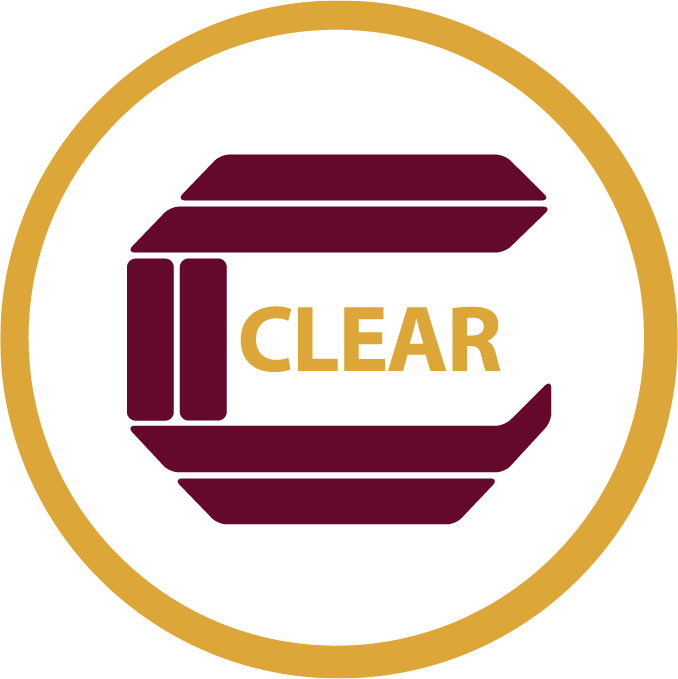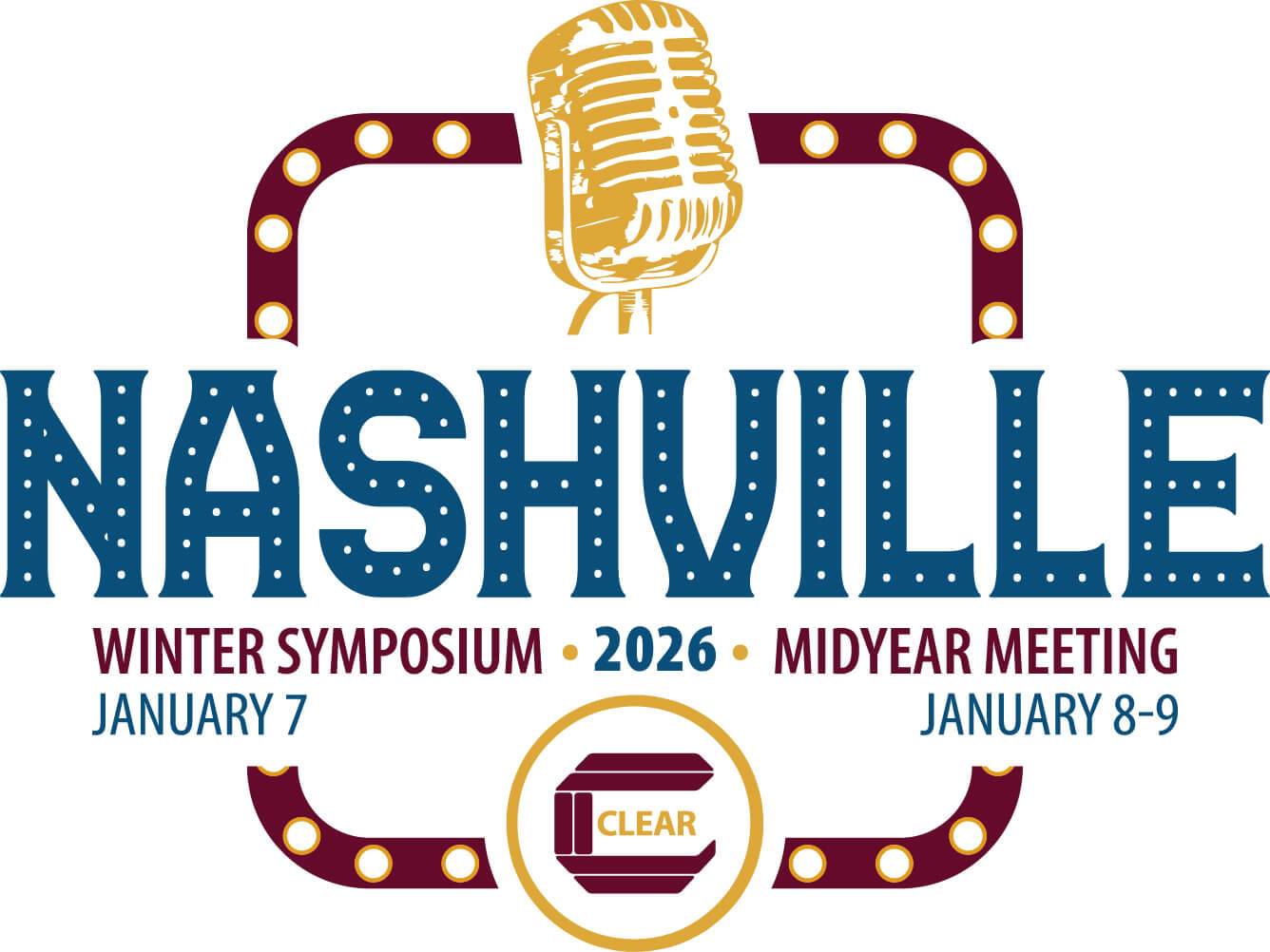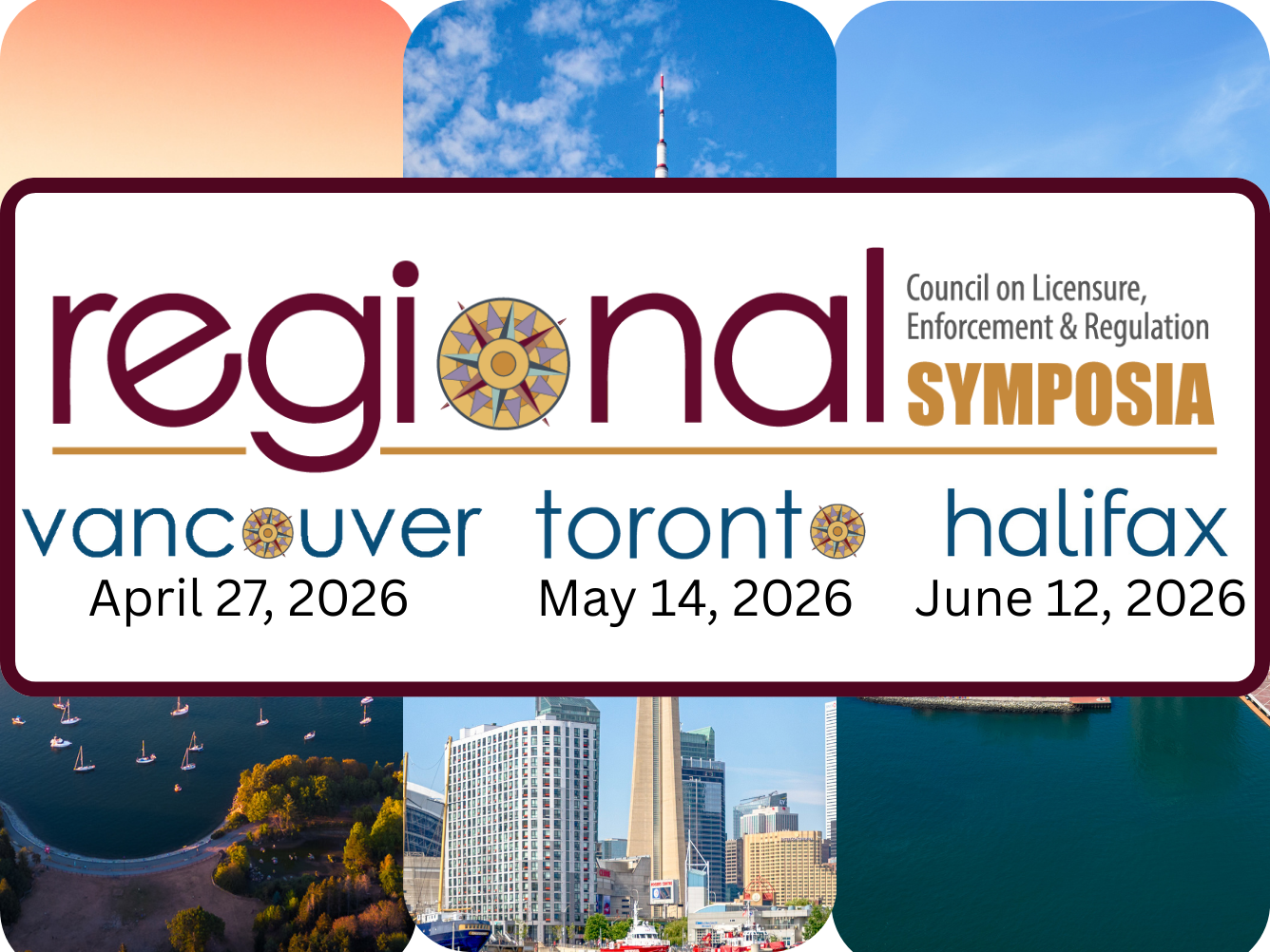CLEAR Publications
| Members Only Access |
CLEAR works with its committees and regulatory experts to curate a publications library including monographs, reports, and resource briefs. CLEAR Members receive complimentary or discounted access to all publications.
Monographs and Reports
By Kara Schmitt
Questions a Legislator Should Ask is designed to provide important questions to be asked, as well as background information, to assist policymakers in their deliberation of proposed new professional regulation as well as revisions to current statutes. The questions included will help guide legislators towards achieving the desired goal of creating legislation that protects the public from unscrupulous practitioners. This book can also be of value to legislative staff and regulators who may need to provide information to stakeholders. The background information will serve as a basis for understanding the benefits and liabilities of regulation.
The original 1978 edition of Questions a Legislator Should Ask, by Benjamin Shimberg and Doug Roederer, Kara Schmitt, Editor, is considered a classic among state policy makers. Although there have been myriad changes to regulation during the past 40 years, most of the original questions are still applicable in today’s environment. This edition, published in 2018, includes an updated reference list, more current citations and examples, and some of the new practices found in the 21st century.
This publication can be ordered through the CLEAR Store. Price: $20 for CLEAR members and $25 for others. Prices include shipping and handling.
By Kara Schmitt
If you're new to professional regulation, or even if you've worked in the regulatory arena for several years, there are probably questions you've been afraid to ask. Questions like: How did our present regulatory system evolve? Why do professions and occupations want to be regulated? How is the regulatory scene changing?
This book, revised in 2015, simplifies the complicated laws, rules, jargon and policies of regulation. While it probably won't answer all of your questions, it should equip you with the means to ask intelligent questions and make constructive suggestions in this complex and intriguing regulatory world.
This publication can be ordered through the CLEAR Store. Price: $28 for CLEAR members and $35 for others. Prices include shipping and handling.
Since the 1990 passage of the Americans with Disabilities Act (ADA), individuals throughout the regulatory community have been seeking a clearer understanding of their legal responsibilities under the ADA. What is required by this landmark piece of legislation? How should you respond to requests for specific testing accommodations? How do you determine the reasonableness and appropriateness of the request?
This manual is a useful guide for anyone faced with the above questions. It provides a brief overview of the ADA as it pertains to testing candidates with disabilities, examples of specific requests and guidelines for appropriate response. Plus, the annotated bibliography allows for quick access to a number of important ADA rulings.
This publication is available online free of charge to CLEAR members. CLEAR members may purchase a printed copy through the CLEAR Store for $18 plus $3.99 shipping and $1 handling per item.
Examinations play a vital role in the credentialing process. While the purpose of credentialing examinations—assuring minimal competence to practice a profession at the entry level—is perhaps very well understood, the technical aspects of examinations are less well known and often misunderstood.
Since the mission of regulatory agencies is public protection, it is essential that members of these agencies understand the tasks that should be performed in the development, administration, analysis and reporting of credentialing examinations. This monograph has been developed to help provide the information necessary to understand the technical basis for many of the practices followed by testing professionals.
This publication is available online free of charge to CLEAR members. Others may purchase an electronic version of the publication through the CLEAR Store for $29.99.
This brief document recommends testing procedures and practices designed to enable candidates to attain optimal performance on credentialing examinations. Emphasis is placed on providing essential information to prepare the candidates before the test; providing a test administration environment and procedures conducive to good performance; and providing timely and accurate scoring, standard setting and reporting after the test. A revised version of this publication is available for members online.
Summarizing the nature of professional and occupational regulation in the United States is complex, as evidenced by the numerous permutations of the structural models in use within jurisdictions. The goal of the “U.S. State and District of Columbia Regulatory Structures Report” is to provide information to facilitate discussions about the utility of the various models, including the benefits and challenges of each. The report presents a snapshot of the governance structure of regulatory boards in the United States as of Fall 2019. The verbatim responses of the participants provide a rich source of information and should be considered carefully.
Were you looking for a topic we don't have?
Please let us know.
Resource Briefs
CLEAR's Resource Briefs are a collection of short papers on current issues in occupational and professional regulation. Each Resource Brief represents the opinions of the author(s) and is not to be considered an endorsement by CLEAR. The most recent resource briefs are available on a complimentary basis to CLEAR members only. If you would like to submit an article for consideration as a future Resource Brief, please click below.
- An executive summary
- An introduction explaining the importance or relevance of the subject to the regulatory or credentialing communities
- A brief review of opposing or alternate viewpoints
- A conclusion that mentions the implications or consequences of current action (or inaction)
Submissions will be acknowledged by CLEAR staff within three days of receipt. Within two weeks of submission, reviewers will be selected and invited to confirm their interest and availability to review. Upon acceptance of the invitation to review, reviewers will be provided with a copy of the manuscript, without identifying information of the author, and the review form. Manuscripts are reviewed based on the following criteria:
- The manuscript deals with an issue of concern to a large segment of the regulatory community.
- The manuscript shares information or practical “know-how” that members of the regulatory community are likely to find helpful.
- The manuscript serves to stimulate thinking, discussion, even controversy, within the regulatory community.
- The manuscript is written at a level understood by members who are not specialists in the subject matter.
- The manuscript exhibits logical or clear thinking and is factually accurate.
Upon the review deadline, CLEAR staff will forward all reviewer comments, without identifying information, to the author for consideration. The author will have six weeks to consider the comments and incorporate suggested revisions as he/she sees appropriate and submit a revised version of the manuscript.
Approved manuscripts will be formatted for publication on CLEAR’s website and published within one week of approval. New publications will be announced on CLEAR’s website and via email to CLEAR’s membership.
2022
- How Sunrise Reviews Help Keep Regulation Focused on Health and Safety by Kathy Sanchez and Elyse Smith Pohl (Members-only Access)
2019
2018
- Establishing Evidence for Regulatory Policies: A Method and Case Example by Deb Elias, RN, MN | Jill Tomasson, Ph.D. | Leanne Worsfold, RPN
2014
- The Balance Between Public Protection and the Right to Earn a Living by Dick M. Carpenter, II, Ph.D. | Lee McGrath
2013
- Board-Sanctioned Study: A Regulatory Option to Compliment Sunrise and Sunset Reviews by Ally Dering-Anderson, B.A., Pharm.D., R.P., FAAIM | Elina V. Pierce, B.A., M.S.P. | Donald D. Klepser, Ph.D., M.A.
- Regulator’s Role in Establishing Defensible Credentialing Programs by Steve Nettles, Ed.D. and Larry Fabrey, Ph.D.
2010
- Job Analysis: A Guide for Credentialing Organizations by Roberta N. Chinn and Norman R. Hertz
2009
- Consistent Decision Making by Regulators by Robert Chambers
2006
- Considerations in Setting Cut Scores by Roberta N. Chinn
- To Translate, or Not Translate: That Is the Question by Norman R. Hertz
- Building the Future: A Toolkit for Thinking About the Future (Updated) by Steve Boruchowitz
2004
- Building and Managing Small Examination Programs by Roberta N. Chinn, Norman R. Hertz, and Barbara A. Showers
2001
1999
- Licensure Examinations by Norman Hertz and Roberta Chinn
- Globalization of Professional Practice by David Knauer
- Reference Guide for Auditing a Credentialing Examination Program by Barbara Showers
- Role Of A Person On The Governing Body Of A Regulatory Entity by Barbara Smith
1998
- The Reinstatement Hearing in the Discipline Process: Ethics and Guidelines by Brian Donohue
- Virginia, The Regulation of Health Professions, and the Pew Commission Recommendations by C. Donald Combs
- Evaluating a National Examination Program by Lorraine P. Sachs
- The Texas Health Professions Council: An Alternative to the Consolidation of Licensing Boards by Jane McFarland
- State Licensing Boards and the Limits of State Action Immunity by Meredyth Smith Andrus
1997
- The Maricopa Health Care Integrated Educational System: A Collaborative Model for Surviving Health Care Change by Mary F. Briden
- Legal Update: Current Issues Affecting Accrediting Bodies by Susan Dorn and Kristin Becker
- Physicians and Deceptive Advertising: How Should Federal and State Regulators Respond? by Matthew Daynard
1996
- Alternative Dispute Resolution and Professional Licensing by Pam Brinegar and Bruce Douglas
- Model Sanctions by CLEAR's Regulatory Issues Subcommittee
- Webs of Affiliation: The Organizational Context of Health Professional Regulation by Richard D. Morrison


